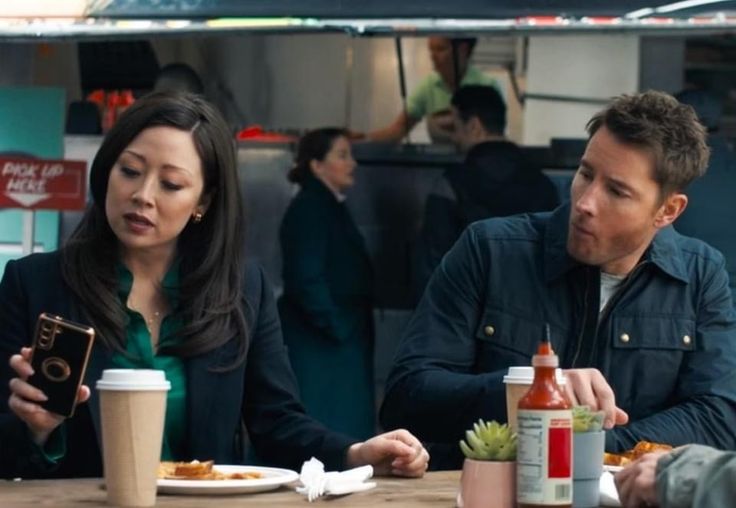
Tracker season 2 continues to depict Colter Shaw as an elite investigator who tackles missing persons cases and is rewarded for it. Shaw receives help from attorney Reenie Greene, computer scientist Bobby Exley, and handler Velma Bruin. Velma’s wife, Teddi Bruin, was a primary member of Colter Shaw’s team before she left after season 1. Out of all of Shaw’s partners in crime, Bruin is arguably the most impactful because she provides emotional support to him when necessary and expresses her sentimentality towards the people Shaw helps.
However, Velma’s role in Tracker season 2 has diminished compared to the first season due to Teddi’s absence and the increased partnership between Shaw and Randy, Bobby’s cousin. Randy’s role on Colter’s team elevated when Bobby was absent for a few episodes due to family matters. While Velma is extremely crucial in handling Colter’s operations, she, along with the other members of Shaw’s team, are secondary since Colter is the center of attention. For Tracker season 3, Velma and the other handlers need more depth to expand their roles in the show.
If you’ve followed Tracker from day one, you already know the magic it had in Season 1. The thrilling mix of mystery, raw action, and compelling characters kept fans glued to the screen. But then came Season 2, and with it… a strange turn. One character, in particular, was pushed so far into the background that you’d forget they were even part of the story. And let’s be real—by the end, their role felt totally pointless. Let’s unpack what happened, why it matters, and why Season 3 may not be able to save it.
The Character in Question: Who Got the Short End of the Stick?
Without dancing around it—Bob Exley. Remember him? The quirky yet insightful tech guy who brought both brains and comic relief in Season 1? Yep, that Bob. Once a fan-favorite for his oddball charm, Bob’s character was gradually reduced to glorified background noise in Season 2.
From Vital to Vanishing – A Breakdown of Bob’s Decline
Season 1: The Unsung Hero
In the first season, Bob was a scene-stealer. He had depth, purpose, and personality. Whether he was cracking encryption or cracking jokes, he always mattered. His dynamic with Colter Shaw helped balance the serious tone with some lightness and complexity.
Season 2: Ghosted by the Writers
Come Season 2, Bob’s contributions were minimal—if any. Instead of evolving or being given a new arc, he was tossed into the narrative margins. Most episodes could’ve played out exactly the same if Bob had been written out completely. That’s a red flag.
Why This Change Hurt the Show
The Emotional Disconnect
Characters are the heart of any story. Without them, plot twists and suspense fall flat. Bob provided a link to humanity—a tether to the tech-driven part of the team that felt grounded. Losing that made the show feel colder and more robotic.
Fans Noticed—and They Weren’t Quiet About It
Social media lit up with disappointed fans asking, “Where’s Bob?” or “Why even include him if he’s doing nothing?” Reddit threads and Twitter were filled with memes mocking his absence or lack of lines. When your fanbase notices a character’s irrelevance, it’s never good.
Missed Opportunities in Season 2
Untapped Backstory Potential
Bob’s hinted past as a hacker or even a whistleblower? Never explored. That was a goldmine of narrative potential left to rot. Instead, writers introduced new side characters that didn’t resonate nearly as much.
The Shift to Plot Over People
Tracker Season 2 leaned hard into procedural elements, which is fine—but not at the expense of character development. Plot can move the story, but characters make us care. They dropped the ball here, especially with Bob.
Can Season 3 Fix This? Honestly, Probably Not.
Damage Already Done
Once a character’s role is diminished for too long, reviving them can feel forced. It’s hard to suddenly convince viewers to care again, especially if they’ve already emotionally checked out.
Too Many New Faces
Season 2 introduced a slew of new players. By now, the show seems more interested in fresh faces than fixing the ones they already had. That leaves little screen time to repair what’s broken.
The Trust Issue
Let’s face it—fans feel let down. Giving Bob a redemption arc in Season 3 could feel more like damage control than organic storytelling. And once trust is broken, it’s tough to earn it back.
What Could’ve Been Done Differently
More Integration into Main Plots
Instead of sidelining Bob, writers could’ve made him essential to at least one major case or story arc. Imagine him being blackmailed by an old hacker group, forcing the team into a moral gray area. That would’ve been TV gold.
Explore the Man Behind the Monitor
Bob has quirks. But what about his past? His fears? His motivations? Even one focused episode could’ve added layers to his character that lasted through the season.
Why Viewers Care So Much
The Human Connection
People watch shows for connection. Colter may be the hero, but Bob was the guy fans saw themselves in. The underdog, the smart guy, the loyal sidekick. Removing that from the equation messes with the emotional chemistry.
Representation of Nerd Culture
Bob represented the less “cool” side of heroism—the one not holding a gun or chasing suspects, but still saving the day. That’s an archetype many fans love and relate to. Losing that feels like a step backward.

How Shows Can Learn from This Mistake
Never Introduce a Character Without a Long-Term Plan
TV writing isn’t just about getting from point A to B—it’s about making every moment, and every person, count. Bob deserved better because he was made important from the start.
Don’t Chase Trends, Chase Stories
In the rush to be “bigger” and “bolder” in Season 2, Tracker forgot what made it special—strong characters. Adding drama and action is fine, but not at the expense of the emotional soul.
Conclusion: The Sad Truth About Bob in Tracker
Tracker Season 2 didn’t just forget Bob—it erased him. And that hurts the story more than the writers might realize. While the show is still thrilling and visually gripping, its emotional impact is duller without characters like Bob having real roles.
As for Season 3? Sure, anything’s possible. But given how far Bob’s been pushed out, bringing him back into meaningful relevance would take more than just screen time. It would take intention, storytelling finesse, and a serious course correction.